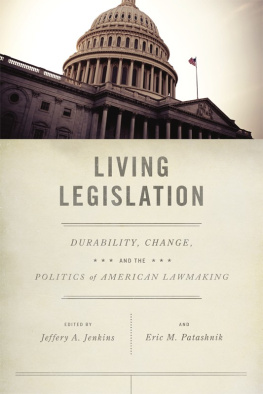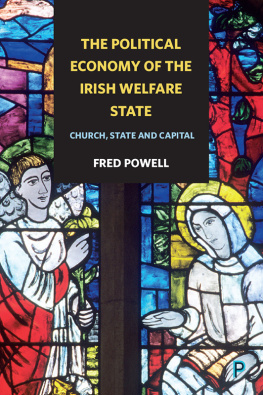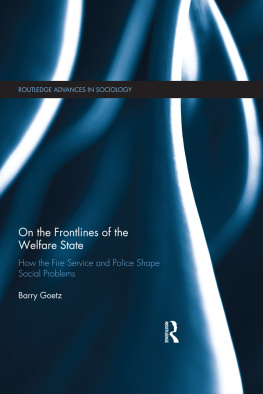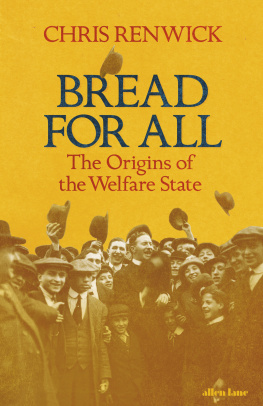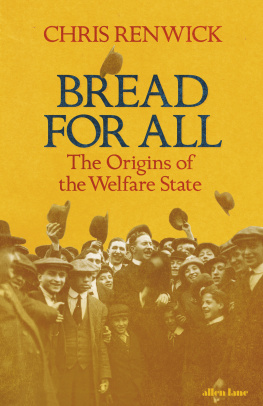Preface
Every history bears the impress of its times. This book is no exception. At the close of the twentieth century, one cannot help but be provoked by the changes and problems greeting the new millennium. Of particular concern for this book is a set of challenges bound up in what some scholars have called the three crises or malaises of modernity: (1) an epistemological crisis wrought by the continued ascendancy of a thin, instrumental rationality in public as well as private life; (2) a social crisis perpetuated by the impoverished ethics of atomistic individualism and hedonistic consumerism; and (3) a political crisis marked by the dangerous coupling of an enervated democracy and public sphere with a relentlessly aggrandizing state. In the economic sphere, the fall of communism has done nothing to diminish Karl Marxs initial apprehension about new forms of alienation and oppression emerging from within the liberation of capital.
One response to present crises is a rush to the pasta mythical American past. The failure of one version of socialist utopia has been accompanied by a blind return to its alter egoneoclassical liberalism. As Marx and the twentieth-century Soviet Union have faltered, John Stuart Mill and the nineteenth-century United States have enjoyed something of a rebirth. Critiques of modern state power and public institutions attend a simple revival of faith in the naturalistic workings of the market and civil society. Contemporary politicians and commentators suggest that most of Americas current problems stem from the excesses of twentieth-century statism, socialism, and welfarism. They proffer an uncomplicated solutiona return to the golden age of American liberalism, the nineteenth-century Jeffersonian world of minimal government, low taxes, absolute private property, individual rights, self-interested entrepreneurship, and laissez-faire economics. This book argues that such a world never existed, that nineteenth-century America was home to powerful traditions of governance, police, and regulation that refuse to conform to our twentieth-century ideological and psychological imperatives.
But though we cannot go back to a past that never existed to meet our current crises, nineteenth-century history remains a useful schoolhouse. The centrality of public spirit, self-government, and an active citizenry to the early American state reminds a struggling twentieth-century polity about the indispensable role of participation and the peoples welfare in a democratic republic. Similarly, the local and social nature of nineteenth-century governance hold out alternatives to the twin tendencies of modern political change, centralization and individualization. It is also comforting to know that nineteenth-century Americans could find room for a political faith between the Scylla of socialism and the Charybdis of economic liberalism, skeptical of the claims that a good society could only come from a surrender to either the state or the civil society. Finally, much can be learned simply by encountering an early American legal-political tradition that departs so markedly from its advance billing, a tradition in which individual rights were inseparable from social duties, liberty was regulated, and the private and the public were inextricably intertwined in a vision of a well-regulated society. In the end, history provides no simple answers to fall back on, only better understandings with which to go forward.
This book also bears the impress of some extraordinary people who deserve mention and thanks. In my dissertation, I indulged the modern penchant for elaborate acknowledgments. Here I simply would like to list those most indispensable to my life and work. Good lists and their edifying power are at the heart of this book. This list is closest to my own: my mentor, Morton Keller; my teachers, Michael Grossberg, Hendrik Hartog, Morton Horwitz, Willard Hurst, James Kloppenberg, and Carl Ubbelohde; my advisers, Robert Gordon, Thomas Green, Arthur McEvoy, and Christopher Tomlins; my colleagues, George Chauncey, Kathleen Conzen, Julius Kirshner, Steven Pincus, and Richard Ross; my research assistants, David Tanenhaus and Scott Lien; my friends, Ben Brown, Elizabeth Clark, Sarah Gordon, Richard John, Thomas Pegram, Linda Przybyszewski, Nayan Shah, Stephen Smith, Manfred Ungemach, Victoria Woeste, Barbara Welke, Michael Willrich, and Charles Yanesh. And, most importantly, my parents, Louis and Elizabeth Novak; my love, Margaret Sikon Novak; and my joy, Max and Gabe. Anyone acquainted with them knows how fortunate I have been. Anyone acquainted with me knows how indebted I am. Anyone getting acquainted with this book should know that I alone am responsible for its shortcomings.


